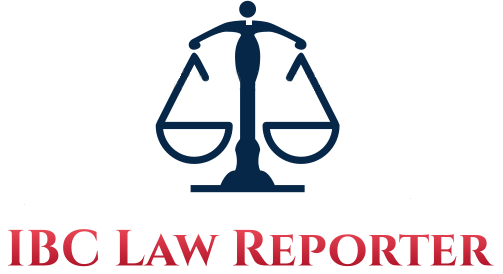YOGESH CHANDAR GOYAL & ORS vs THE STATE & ANR.CRL.M.C. 888/2022
Facts:
1) Petition has been filed under Section 482 of the Code of Criminal Procedure, 1973 (in short, „Cr.P.C.‟), challenging the Order dated 12.02.2020 (hereinafter referred to as the „Impugned Order‟) passed by the learned Additional Sessions Judge, Central District, Tis Hazari Courts, Delhi (hereinafter referred to as the „ASJ‟) in Crl.Rev.No.169/2019, titled as Yogesh Chandra Goyal & Ors. v. K.K.Goel & Sons (HUF), dismissing the said Revision Petition filed by the petitioners herein.
Issue: Whether the petition can be allowed ?
Arguments:
Petitioner:
1) Counsel submitted that offence under Section 447 of the Companies Act is concerned, in terms of the second Proviso to Section 212(6) of the Companies Act, cognizance of the said offence can be taken only on a complaint made by the Director, Serious Fraud Investigation Office (in short, „SFIO‟) or any officer of the Central Government authorized by a General or Special Order in writing in this behalf by that Government.
2) It was submitted that For the offence under Section 185 of the Companies Act, the offence is alleged to have been committed by the petitioners in the years 2002 to 2008. He submits that even assuming that the petitioners may have committed such an offence, in terms of Section 468(2) of the Cr.P.C., there is a bar on taking cognizance of such an offence after a period of six month
3) It was submitted that the petitioners are also facing prosecution under Section 295 of the Companies Act, 1956, which is equivalent to Section 185 of the Companies Act, 2013, on a complaint filed by M/s Glory Apartments Pvt. Ltd., a company in which the respondent no. 2 holds substantial interest and controls its day-to-day affairs and functioning.
Respondent:
1) Counsel submitted that there is no dispute that the cognizance of an offence under Section 447 of the Companies Act can be taken only on a complaint filed by the officer under Section 212(6) of the Companies Act, and that there is a statutory bar on taking cognizance except upon a complaint made by such specified fficer, however, there is no bar on taking cognizance of an offence of conspiracy under Section 120B of the IPC to commit offence under Section 447 of the Companies Act. He submits that an offence of conspiracy, being an independent offence, the cognizance of the same can be taken even though the complaint is not filed by an officer specified under Section 212(6) of the Companies Act.
2) Section 452 of the Companies Act has more severe punishment than that under Section 185 of the Companies Act, therefore, Section 452 of the Companies Act shall, for purposes of Section 468(3) of the Cr.P.C. would have to be treated as prescribing more severe punishment.
Decision: HC allowed the petition.
Rationale:
1) It held that as the complainant himself is a shareholder of the Complainant no. 2 company, and, in any case, has not pleaded that he did not know of the offence having been committed by the petitioners, the cognizance taken of the offence under Section 185 of the Companies Act which is stated to have been committed between the years 2002-2008, on a complaint filed in 2017, was barred by limitation and is, therefore, bad in law.
2) A reading of the above provision would show that wrongfully withholding of the possession of the property of the company, including cash, is itself an offence under Section 452 of the Companies Act. The offence would, therefore, continue till the time such property of the company is wrongfully withheld by the accused. This would, therefore, be a ‗continuing offence‘. As far as cognizance taken by the learned Trial Court of the offence under Section 452 of the Companies Act is concerned, for the above reasons, it cannot be faulted on the ground of being beyond the period of limitation.
3) In the present case, the alleged handing over of the property of the Company by the petitioner no.1 to the petitioner no.4, as alleged in the paragraphs 13 and 21 of the complaint quoted hereinabove, constitutes an offence under Section 185 of the Companies Act. The non-return of the property, that is, loan and the advances, is alleged to constitute an offence under Section 452 of the Companies Act. Therefore, in terms of Section 220 of the Cr.P.C. both the offences can be tried together.
Order:
